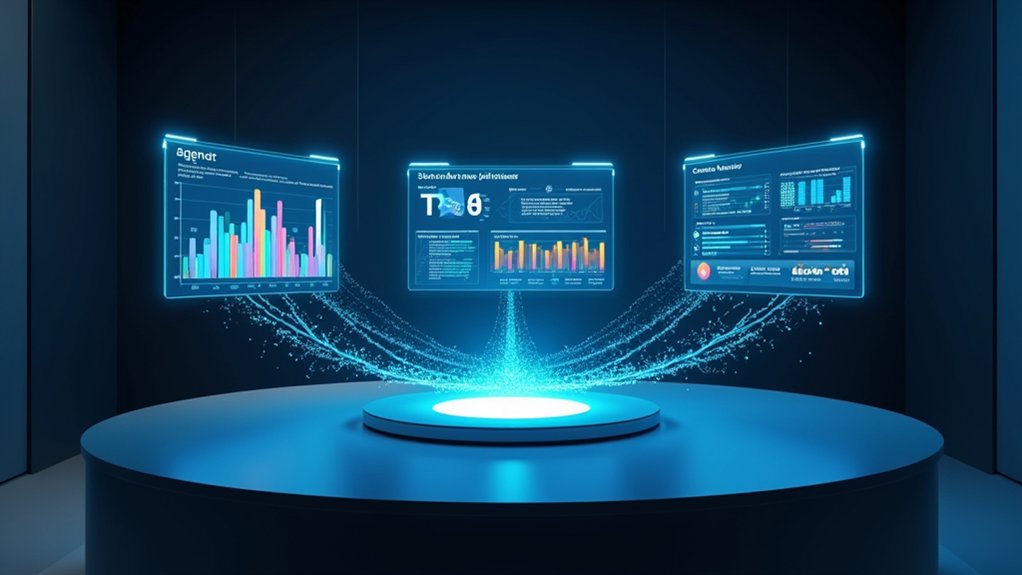As the digital world spins faster than a marketer’s caffeine-fueled brainstorm, multi-agent AI is flipping the script for teams drowning in tasks. These systems automate and coordinate diverse marketing duties with barely a human glance. Agents specialize—think data analysis, content creation, lead scoring, campaign execution, and customer chats. An orchestrator agent keeps everything in line, managing workflows and chatter between bots. It’s like a well-oiled machine, but smarter, enabling seamless campaigns across platforms. For instance, Goodie AI utilizes proprietary brand score to optimize brand visibility in AI search engines.
And here’s the kicker: these agents learn on the fly, adapting from campaign flops or wins to get better. Oh, please, no more guesswork.
Dig into the data side, and it’s a goldmine. AI agents crunch massive customer and market datasets, spotting trends that humans might miss. They spit out predictive analytics for lead scoring or sales forecasts. Market trend agents watch competitors like hawks, flagging industry shifts. Performance trackers monitor KPIs in real time, suggesting tweaks if things derail. This approach enhances efficiency by leveraging real-time analytics to process vast data instantly and drive swift decision-making. Integrated with CRMs, it’s a data feast.
Dig into data: AI agents crunch datasets, spot trends humans miss, and deliver predictive insights—it’s a goldmine feast!
But wait, this isn’t magic; it’s just efficient, cutting through the noise.
Lead management gets a boost, too. Scoring agents prioritize prospects based on engagement and past conversions, helping sales zero in on winners. Deal predictors gauge closing chances from behaviors, while recommendation agents dish out next steps to speed things up. Pipeline monitors catch bottlenecks early, preventing deals from stalling. It’s blunt: this tech books more meetings, shortens sales cycles. No fluff, just results.
Campaign coordination? A breeze with multi-agent setups. They handle scheduling, content blasts, targeting, and budgets automatically. Agents enforce brand rules across channels, avoiding those embarrassing inconsistencies. Tasks divide up for parallel execution, slashing turnaround times. Marketers ditch the repetitive grind, focusing on big ideas instead.
And with AI monitoring metrics, teams pivot fast to market changes. Moreover, by integrating AI agents into existing tools like Salesforce and Slack, marketing teams can enhance operations without increasing headcount. It’s almost too good.
The industry’s exploding, with AI agent markets projected to hit $216.8 billion by 2035 at a 35% CAGR. Agentic AI is all the rage, ditching single tools for proactive ecosystems. Interoperability boosts adoption, reshaping martech.
Yeah, it’s a wild ride, but effective. These systems aren’t just helpers; they’re game-changers, folks. (Word count: 355)




